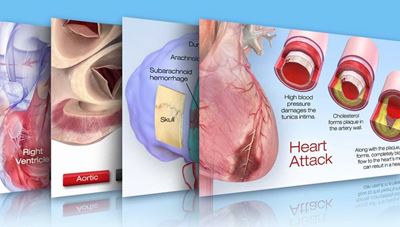Medications Used to Treat Heart Failure
Studies have shown that several classes of drugs are best to treat heart failure.
Heart failure patients may need multiple medications. Each one treats a different symptom or contributing factor and comes with its own instructions and rules.
You and your caregivers should work with your healthcare team to understand the medications and when, how often and in what dosage to take them.
It’s important to discuss all of the drugs you take with your doctor (or other healthcare providers) and understand their desired effects and possible side effects. Your doctor and your pharmacist are your best sources of information. Don’t hesitate to ask them questions about your medicines.
It's critical that people with heart failure take their medications exactly as directed by their healthcare provider, to optimize the benefits. The use of these drugs has saved lives, prolonged life and improved the heart’s function.
Download a medication tracker (PDF)
The following list gives you a quick look at many typical medications to treat heart failure at different stages. Your prescription may have a different name from the ones listed here. Brand names commonly available in the United States are shown in parentheses after the generic name for each drug.
*Some of the major types of commonly prescribed heart failure medications are summarized in this section. For your information and reference, we have included generic names as well as major trade names to help you identify what you may be taking; however, the AHA is not recommending or endorsing any specific products. If your prescription medication isn’t on this list, remember that your healthcare provider and pharmacist are your best sources of information. It’s important to discuss all of the drugs you take with your doctor and understand their desired effects and possible side effects. Never stop taking a medication and never change your dose or frequency without first consulting your doctor.
Angiotensin-Converting Enzyme (ACE) Inhibitors
Commonly prescribed include:
- Captopril (Capoten)
- Enalapril (Vasotec)
- Fosinopril (Monopril)
- Lisinopril (Prinivil, Zestril)
- Perindopril (Aceon)
- Quinapril (Accupril)
- Ramipril (Altace)
- Trandolapril (Mavik)
Angiotensin II Receptor Blockers (or Inhibitors)
(Also known as ARBs or Angiotensin-2 Receptor Antagonists)
Commonly prescribed include:
- Candesartan (Atacand)
- Losartan (Cozaar)
- Valsartan (Diovan)
Angiotensin-Receptor Neprilysin Inhibitors (ARNIs)
ARNIs are a new drug combination of a neprilysin inhibitor and an ARB.
- Sacubitril/valsartan
If Channel Blocker (or inhibitor)
This drug class reduces the heart rate, similar to another class of drugs called beta blockers.
- Ivabradine (Corlanor)
Beta Blockers (Also known as Beta-Adrenergic Blocking Agents)
Commonly prescribed include:
- Bisoprolol (Zebeta)
- Metoprolol succinate (Toprol XL)
- Carvedilol (Coreg)
- Carvedilol CR (Coreg CR) Toprol XL
Aldosterone Antagonists
Commonly prescribed include:
- Spironolactone (Aldactone)
- Eplerenone (Inspra)
Hydralazine and isosorbide dinitrate (specifically benefits African-Americans with heart failure)
Commonly prescribed:
- Hydralazine and isosorbide dinitrate (combination drug) - (Bidil)
Diuretics (Also known as water pills)
Commonly prescribed include:
- Furosemide (Lasix)
- Bumetanide (Bumex)
- Torsemide (Demadex)
- Chlorothiazide (Diuril)
- Amiloride (Midamor Chlorthalidone (Hygroton)
- Hydrochlorothiazide or HCTZ (Esidrix, Hydrodiuril)
- Indapamide (Lozol)
- Metolazone (Zaroxolyn)
- Triamterene (Dyrenium)
What this type of medication does:
- Causes the body to rid itself of excess fluids and sodium through urination.
- Helps to relieve the heart’s workload.
- Decreases the buildup of fluid in the lungs and other parts of the body, such as the ankles and legs. Different diuretics remove fluid at varied rates and through different methods.
Other medications that might be prescribed
Your doctor may also prescribe other less commonly used drugs depending on your additional health problems. These drugs include:
- Anticoagulants (*blood thinners): These drugs may be prescribed if you are a heart failure patient with atrial fibrillation or have another problem with your heart. Anticoagulants are not used to treat heart failure without the presence of atrial fibrillation.
- Cholesterol-lowering drugs (statins): Your doctor may prescribe this class of medication if you have high cholesterol or have had a heart attack. This class of drugs is not used to treat heart failure, but other conditions as indicated.
- Digoxin: Some heart failure patients might be prescribed this drug if the doctor feels it’s warranted.
Additional medication information:
Watch, Learn and Live

See your cardiovascular system in action with our interactive illustrations and animations.








